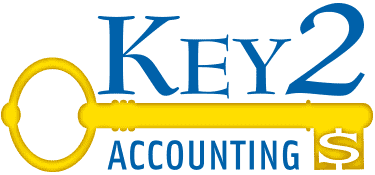Tax law is always evolving, and a recent bill out of the U.S. House of Representatives is stirring up conversation among small business owners, self-employed individuals, and CPAs alike. From promises of “no tax on tips” to expanded child tax credits, the proposed legislation could reshape many aspects of your personal and business finances.
But here’s the catch: none of it is final. And acting too fast could cost you later.
At Key2 Accounting, we provide business accounting services to clients across Fort Collins, Hawaii, and beyond. We’re here to break down the most notable provisions in the proposed tax bill, explain why jumping the gun on tax planning is risky, and show how our team can help you stay informed—without making premature financial decisions.
TL;DR Summary
- What’s Happening? A new House tax bill proposes big changes—expanded deductions, tax-free tips, estate tax adjustments, and more.
- What’s at Stake? These are proposals, not law. They must pass both House and Senate versions before becoming official.
- Why Be Cautious? Acting now could lead to poor outcomes if the legislation is altered.
- What to Do Now? Work with a CPA to monitor changes and create flexible, long-term tax strategies.
Highlights from the House Tax Proposal
Let’s walk through some of the most impactful proposed changes and what they could mean for self-employed individuals and small businesses:
Permanent Standard Deduction Increases
The bill would extend the enhanced standard deductions introduced under the Tax Cuts and Jobs Act, plus boost them temporarily through 2028.
- Additional $1,000 for individuals
- $1,500 for heads of household
- $2,000 for married couples
Senior Bonus Deduction
Seniors 65+ may receive an additional $4,000 deduction from 2025 to 2028, with income-based phaseouts. This could help reduce taxable income for retirees in Hawaii and Fort Collins who still earn from investments or consulting.
QBI Deduction Increase
The Qualified Business Income (QBI) Deduction could rise from 20% to 23%, benefiting self-employed professionals and small businesses across the U.S.
If you’re not sure whether you qualify for the QBI deduction or how to apply it, our CPA team can help you evaluate your income sources.
Estate and Gift Tax Exemption
This would permanently increase the exemption to an inflation-adjusted $15 million—good news for those with family-owned businesses or real estate assets.
“No” Tax on Overtime and Tips
This part is getting a lot of attention:
- Overtime premiums (for eligible workers) could be deductible.
- Tips—if qualified and voluntarily given—may become tax-deductible income for service professionals.
Bonus Depreciation Returns
100% bonus depreciation could be reinstated through 2030, allowing businesses to write off large equipment or property investments immediately.
This can be a major advantage for contractors, tradespeople, or tech startups purchasing new hardware. We recommend reviewing depreciation strategies with our business accounting services team.
SALT Deduction Cap Raised
The State and Local Tax (SALT) deduction limit would increase from $10,000 to $40,000 for individuals earning less than $500,000. This could benefit high-income earners in states with high property taxes.
Why You Shouldn’t Make Hasty Tax Moves
While these proposed changes may look promising, Key2 Accounting advises clients to wait before altering tax or financial strategies. Here’s why:
Legislative Uncertainty
The House bill still needs reconciliation with the Senate version. Provisions could be altered, delayed, or removed entirely.
Political Disagreements
Tax policy is often a battleground. Disagreements among and between parties could shift timelines or reshape core provisions.
Potential Compromises
What looks good now could be watered down later. Making decisions based on current language might backfire once the final version is passed.
Long-Term Risk
Let’s say you restructure your business or shift income to claim a deduction that ends up being excluded. You could face unexpected tax liabilities down the road.
Our goal at Key2 Accounting is to help clients in Fort Collins, Hawaii, and across the U.S. plan proactively—without locking in decisions prematurely.
One Size Doesn’t Fit All
Even if these laws pass, not every taxpayer will benefit the same way. Personalized planning is key—what helps one business may hurt another.
How to Prepare the Right Way
Until the legislation is finalized, your best strategy is to:
- Stay informed: We’ll keep you updated with trusted insights—not just headlines.
- Meet with a CPA: Don’t wait until tax season. We offer year-round consultations to help plan ahead.
- Avoid major moves: Don’t change your entity structure or large financial plans based solely on speculative law.
- Build flexibility: Use safe harbor rules and conservative planning techniques until rules are clear.
Final Thoughts
Change is on the horizon, but patience is your best financial ally right now.
At Key2 Accounting, our certified public accountants specialize in business accounting services, helping individuals and businesses across the country navigate tax law with confidence. Whether you’re managing a side hustle, growing a family business, or preparing for retirement, we’re here to guide you through the complexities—without rushing into risky decisions.
Get Expert Advice Before Making Tax Moves
Contact Key2 Accounting today for personalized planning that keeps your financial future secure—whether you’re based in Fort Collins, Hawaii, or anywhere in the U.S.

